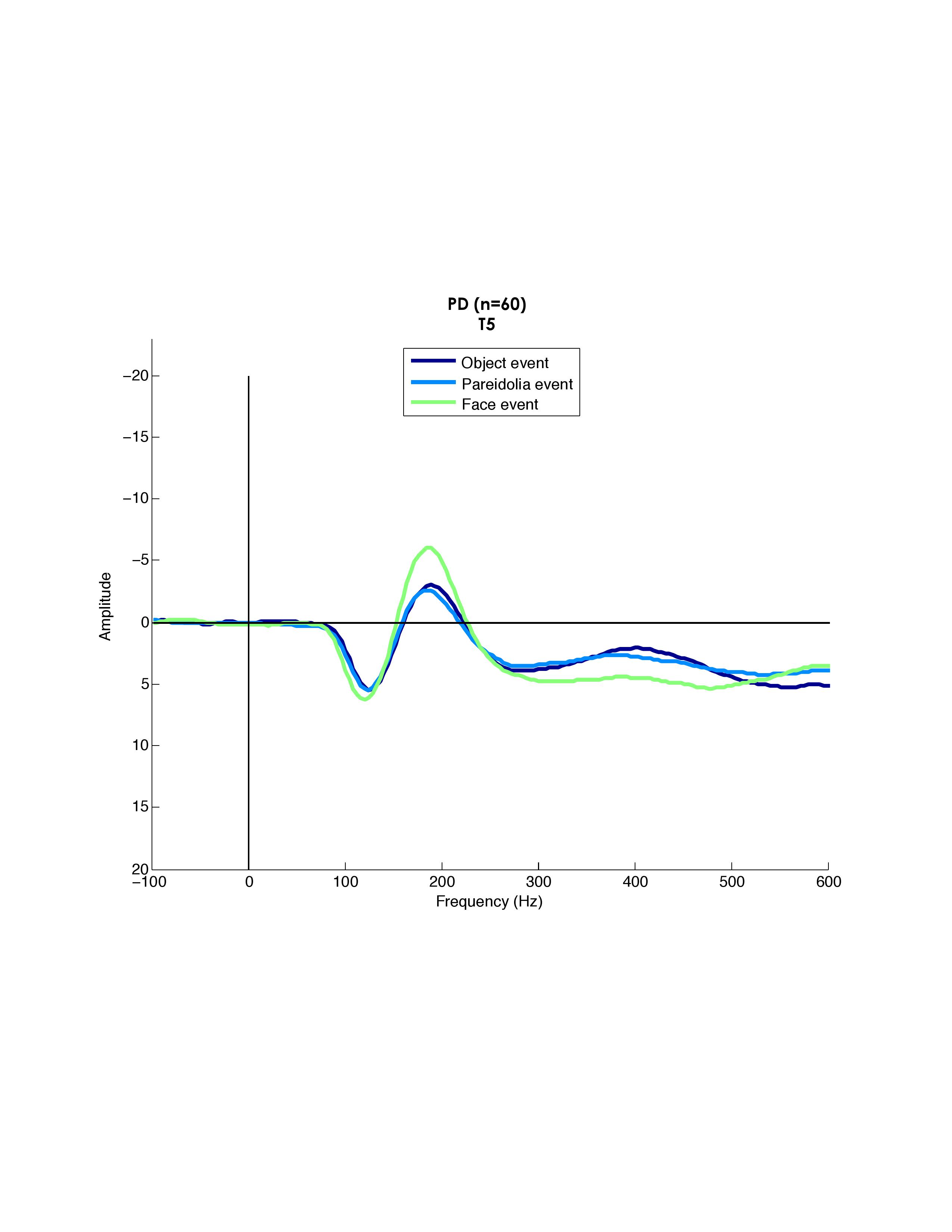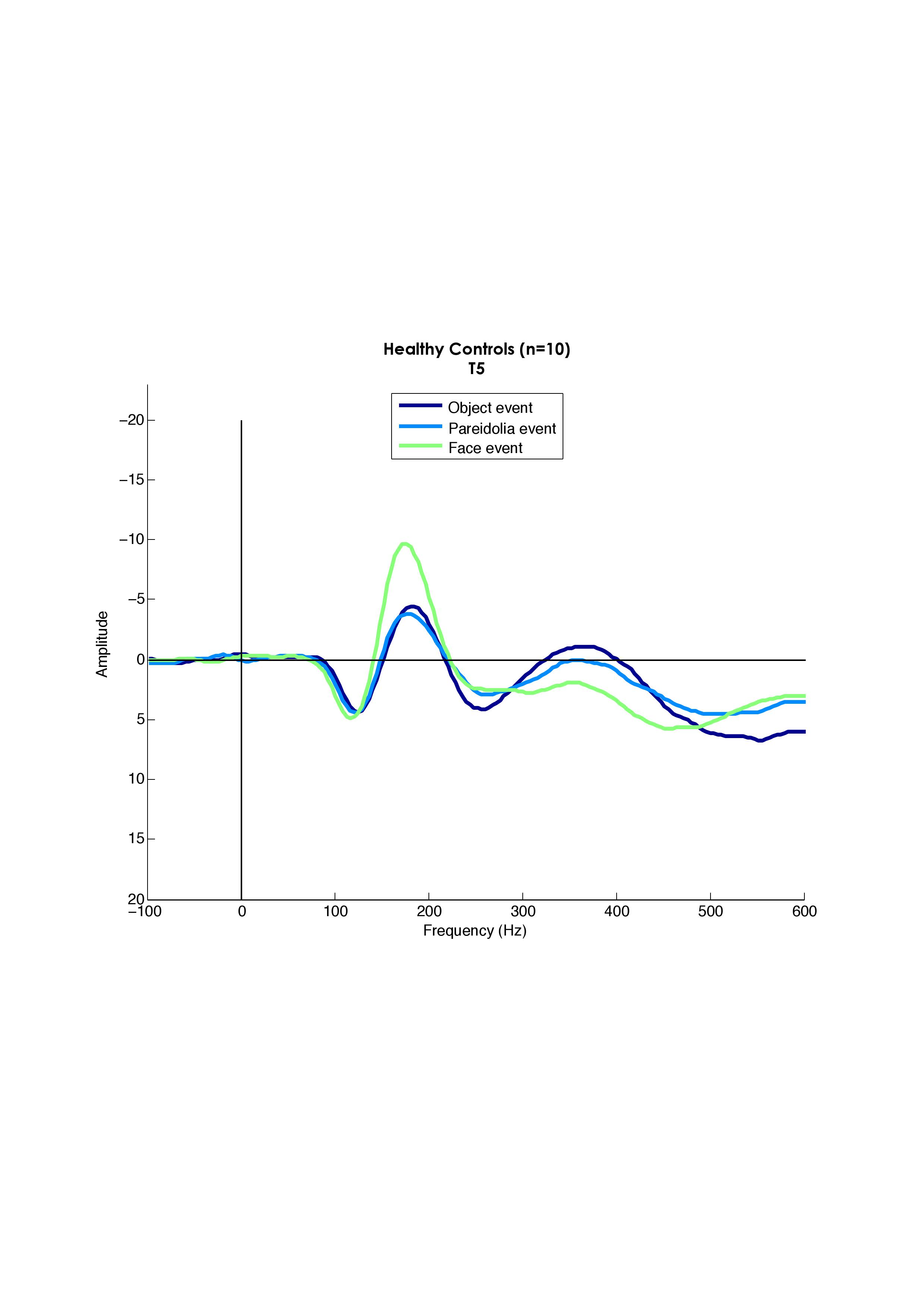Session Information
Date: Wednesday, June 7, 2017
Session Title: Parkinson's Disease: Cognition
Session Time: 1:15pm-2:45pm
Location: Exhibit Hall C
Objective: To measure N170, P3a/P3b peak amplitudes and latencies in PD with (PD-MCI) and without (PD-NC) mild cognitive impairment and to correlate them with clinical-demographic, neuropsychological and neuropsychiatric data.
Background: The definition of objective markers of cognitive dysfuntion would help to detect mild defects at earlier stages, and for an unbiased selection and follow-up of PD-MCI patients.
Recent studies combining fMRI with event-related potentials (ERP) have disclosed areas of cortical dysfunction that can be assessed at the single-patient level. The N170 ERP is associated with activity in fusiform gyrus and superior temporal sulcus, while P300 components P3a and P3b assess prefrontal activity1.
Methods: Prospective sample of PD patients without dementia, classified as PD-MCI according to MDS-Task Force criteria2. Comprehensive neuropsychological battery, and scales assessing depression, anxiety, apathy, and hallucinations were performed. ERP recordings were obtained, by using a two-stimulus active oddball paradigm for P3a (Fz) and P3b (Pz), and by presenting objects and faces for N170 (T5 and T6).
Results: 60 PD patients (32 PD-NC, 28 PD-MCI) and 10 healthy controls (HC) were included. PD patients significantly differed from HC in N170 peak amplitude (0.04) and latency (0.03) at T6 presenting faces, and in P3b latency (0.001). More significant differences (<0.01) were observed for these ERPs between PD-MCI and HC.
PD-MCI differed from PD-NC in N170 peak amplitudes at T5 (0.005) and T6 (0.01) when presenting objects or faces, and in P3a (0.02) and P3b (0.01) latencies.
N170 peak amplitude significantly correlated with worse performance on tests of executive dysfunction (TMT-A and B, phonemic fluency), memory (Buschke free recall), and visuospatial function (VOSP number location), while P3a and P3b latencies correlated more specifically with different tasks of executive dysfunction.
No correlations were found between either N170 amplitude and P3a/b latency with age, education, disease duration, UPDRS-III, dopaminergic drugs, depression, apathy or anxiety.
Conclusions: Event-related potentials significantly differentiate PD-MCI from PD-NC, as well as PD patients from HC, and are not influenced by age, education or disease severity.
N170 peak amplitudes elicited by objects and faces correlate with more widespread cognitive impaiment, while P3a/b latencies correlate more specifically with executive dysfunction.
References: 1. Nguyen VT, Cunnington R. The superior temporal sulcus and the N170 during face processing: single trial analysis of concurrent EEG-fMRI. Neuroimage. 2014;86: 492-502.
2. Litvan I, Goldman JG, Tröster AI, Schmand BA, Weintraub D, Petersen RC, Mollenhauer B, Adler CH, Marder K, Williams-Gray CH, Aarsland D, Kulisevsky J, Rodriguez-Oroz MC, Burn DJ, Barker RA, Emre M. Diagnostic criteria for mild cognitive impairment in Parkinson’s disease. Mov Disord. 2012;27:349-56.
To cite this abstract in AMA style:
J. Pagonabarraga, J. Marin-Lahoz, A. Horta, M. Cornella, H. Bejr-Kasem, S. Martinez-Horta, J. Pérez-Pérez, M.Á. Boti, J. Kulisevsky. Event-related potentials and mild cognitive impairment in Parkinson’s disease. [abstract]. Mov Disord. 2017; 32 (suppl 2). https://www.mdsabstracts.org/abstract/event-related-potentials-and-mild-cognitive-impairment-in-parkinsons-disease/. Accessed February 6, 2026.« Back to 2017 International Congress
MDS Abstracts - https://www.mdsabstracts.org/abstract/event-related-potentials-and-mild-cognitive-impairment-in-parkinsons-disease/


